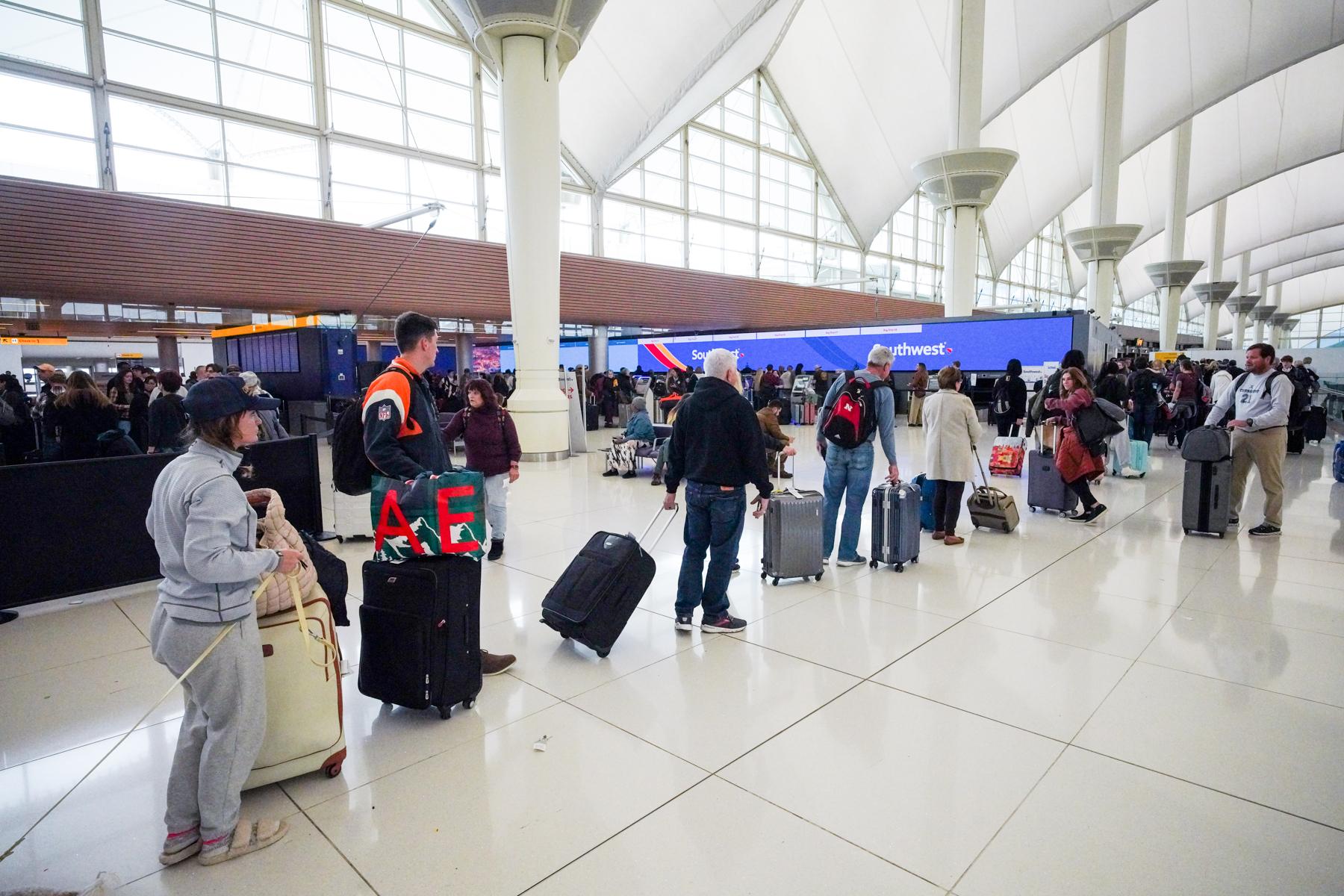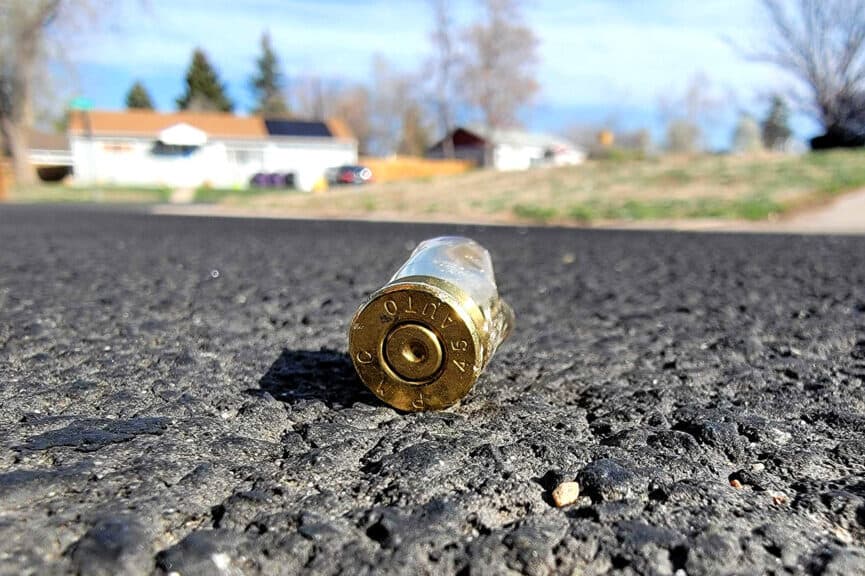
Each day in Colorado, nearly 14 people who should not legally own a gun try to buy one anyway.
As many as five of those people each week are recent arrivals from foreign countries whose backgrounds are largely unknown to authorities. A higher percentage have been convicted of felonies or domestic violence charges or judged to be suffering from mental illness.
Experts say the gun purchase denials — which are immediately reported to local law enforcement, federal immigration officials and some prosecutors — could be useful intelligence. It could point officers to people in the state who may bear further scrutiny before being granted access to sensitive jobs and areas like hospitals, law enforcement or national security work. They could also be used as fodder for tips, and they could help fill out a criminal background profile.
It is also technically against the law for a person to try to buy a gun when they’re not legally eligible. A would-be purchaser could be charged if prosecutors believed the person knew they were not allowed to buy a firearm.
Despite all that though, the denials are largely ignored.
Law enforcement agencies mostly don’t act when electronic messages arrive notifying them that someone in their jurisdiction unsuccessfully tried to buy a gun, even when those missives include important reasons on why they were denied, like an outstanding warrant or a prior felony. Prosecutors, in turn, only get a tiny fraction of potential cases to prosecute. And the Colorado Bureau of Investigation, beleaguered in the past year by one of their prominent crime analysts being charged with more than 100 felonies related to mishandling DNA evidence, acknowledges it has been slow to adopt a way to flag troublesome people attempting to buy firearms the legal way — even though lawmakers entrusted the state agency with the burden last year.
In allegedly planning an anti-Zionist firebombing attack in Boulder that killed one person and injured more than a dozen others, Mohamed Soliman’s attempts last year at buying weapons in many ways exemplifies the strengths and shortcomings of Colorado’s system to prevent people from buying firearms when they’re not legally able to have them.
In November, Soliman tried to purchase guns at a Colorado Springs gun store to carry out his attack, court documents said. In his firearm application, he was flagged as someone without legal status to be in the country, which disqualifies him from buying guns in Colorado.
He left the gun store in Colorado Springs that day without approval for the gun.
Within minutes, the U.S. Department of Homeland Security, the Colorado Springs Police Department and the El Paso County Sheriff’s Office were told about Soliman via a service called Instacheck, which is, essentially, a half a page of information that states the person’s name, the date they tried to buy a gun and why the purchase was denied.
No law enforcement agency acted on — or even made note of — Soliman’s gun purchase attempt.
The following month, in December, Soliman tried to obtain a concealed carry permit from El Paso County to no avail. Authorities were, again, flagged about that via the same instant notification, state officials said.
Again, no one took any action.
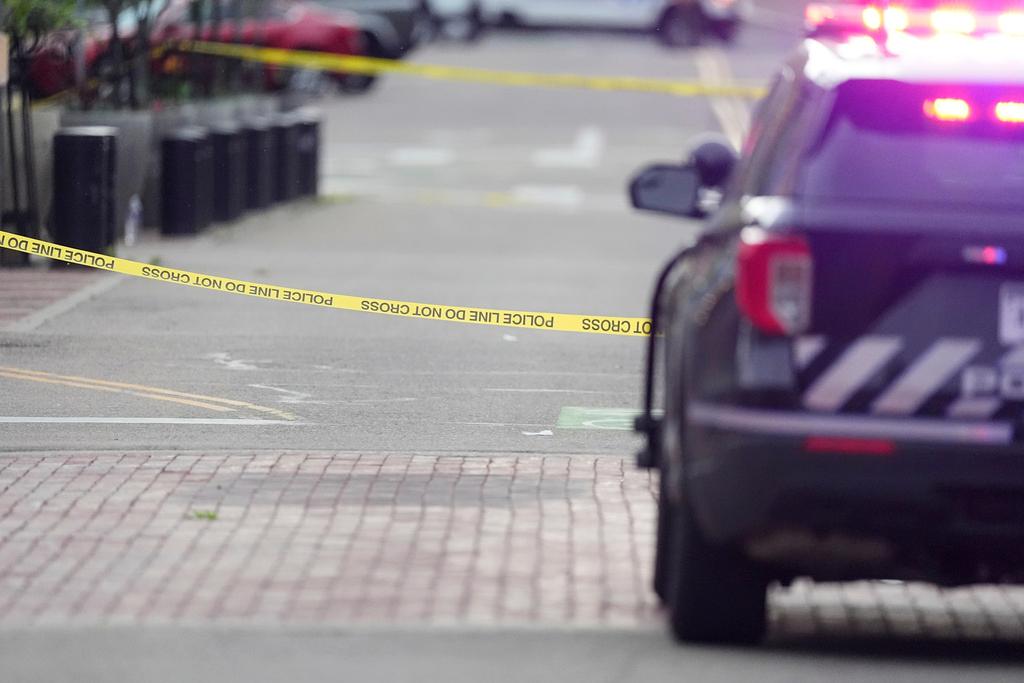
“If someone had shown up at his house or someone had called him on the phone several times and said, okay, you are in violation. It's a $500 fine if you don't pay within 30 days,” said Democratic state Sen. Tom Sullivan, who has been an outspoken advocate for strengthening the state’s gun laws. “Maybe he would have been like, oh my goodness, someone saw me. And then they would rethink what they're doing.”
Instead, Soliman was arrested six months later on Boulder’s Pearl Street Mall, half naked and burned on his arms after allegedly tossing two Molotov cocktails into a crowd of peaceful demonstrators, police said.
He told officers in an interview shortly after the attack that he taught himself how to make the bombs after he was unsuccessful in obtaining firearms.
An investigation quickly unfolded in the following days. The Colorado Springs Police looked up the Soliman family to see what they could find out about them since he lived in their community. They discovered that Soliman had received two local speeding tickets and that his wife was in a car accident.
In that research, Colorado Springs police say they didn’t immediately notice that he was turned down when trying to buy a gun the year before.
That’s because a simple gun purchase denial isn’t necessarily flagged as a crime, said CSPD spokesman Ira Cronin.
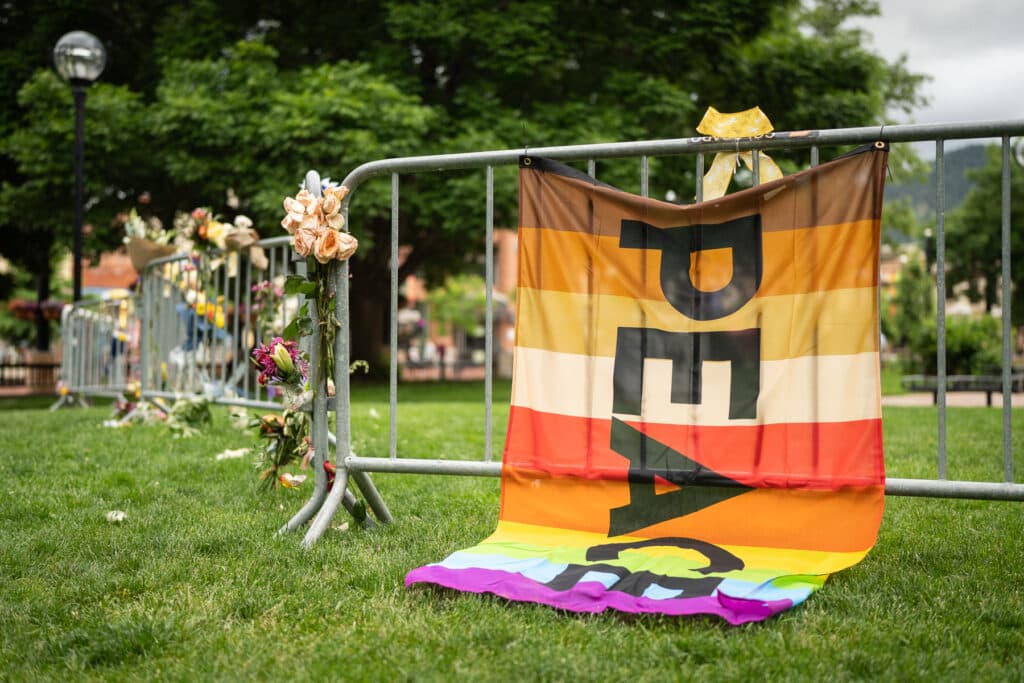
Prosecutors and state lawmakers say, at the bare minimum, gun purchase denials should be treated as a red flag.
And lawmakers added money allocated to the CBI, the state’s law enforcement agency, last year for this specific purpose. CBI said they are ramping up their investigations into rejected gun purchases, but acknowledged it’s been slow.
El Paso County District Attorney Michael Allen said he first heard about Soliman trying to buy a gun in his jurisdiction from the news media. That wasn’t ideal, he said.
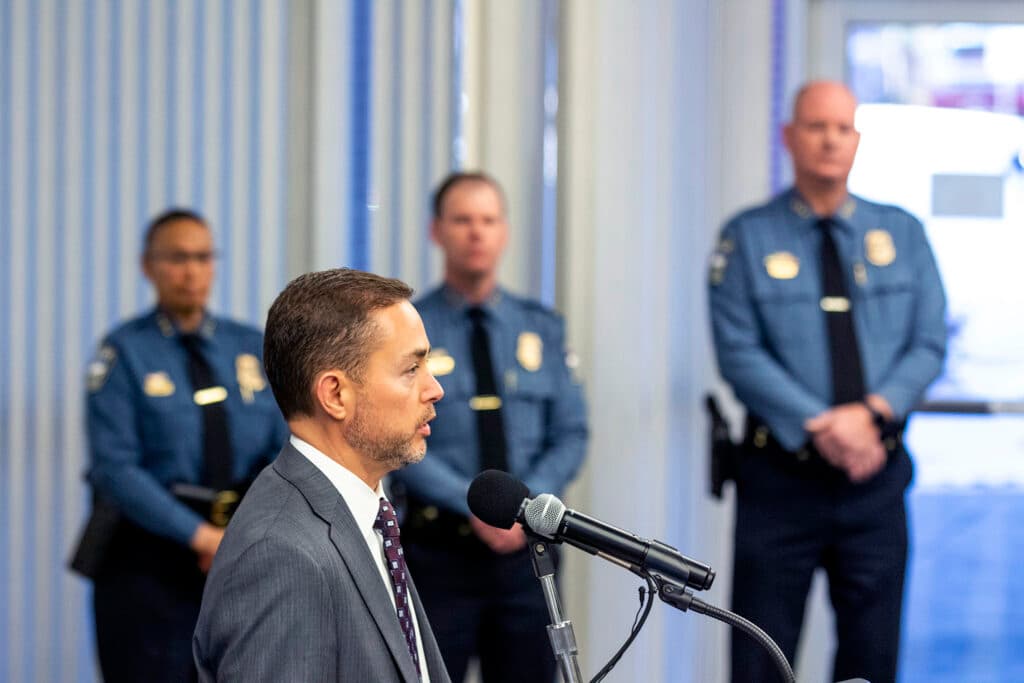
Of the 23 elected district attorneys in the state, 14 have elected to receive the Instacheck notifications of certain background check denials in their areas. Allen is one of them. But the state only notifies him when someone has an open felony warrant, an active protection order or a domestic violence case.
In other words, when undocumented immigrants like Soliman attempt to purchase a weapon, Allen would never know unless the local police or sheriff who were notified choose to tell him.
“People who shouldn’t have access to firearms, whether they’re illegal immigrants, or anyone who is trying to get them, we should know who they are,” Allen said. “What is it that’s coming from CBI and is it actually effective? Is it coming in a way that will lead to an investigation by a law enforcement agency? Can it lead to a criminal investigation?”
Jefferson County District Attorney Alexis King said of the hundreds of gun purchase denials in her county in the last year, she’s received just two referrals from the Colorado Bureau of Investigation to prosecute a case. One, she said, was so weak she didn’t think it would hold up under a judge. The second was filed and those charges are pending, she said.
“You are the state and so get your resources together and figure out if this person is on a (Department of Corrections) website for Christ sakes,” King said, noting an Instacheck notification is like a tip, not a conclusive investigation. “At the end of the day, for people to be held accountable, this tip they’re sending to us, the sheriff’s office or a local law enforcement agency, is not sufficient to act on. And based on the money and the amount of staff that appear to be dedicated to this, it’s really astounding to me that we do not see more filings coming to us and more contact with CBI to develop these cases.”
One of the problems could be that few in Colorado law enforcement seem to prioritize unlawful gun possession unless it is in conjunction with other crimes.
At a state Senate hearing last year, sheriffs from El Paso and Teller County told lawmakers they weren’t in favor of more money going to CBI for gun background investigations and that, generally, the laws were in place already to conduct investigations.
“Because someone was denied that means your system worked. They were denied,” Teller County Sheriff Jason Mikesell told lawmakers. Mikesell is also a Republican running for governor. “The way my office looks at it is that it’s not a crime to try and buy a gun, it’s a crime to purchase a gun if you’re a convicted felon. I think our system is working. Why should we treat 7,000 to 8,000 people as criminals when they may not be?”
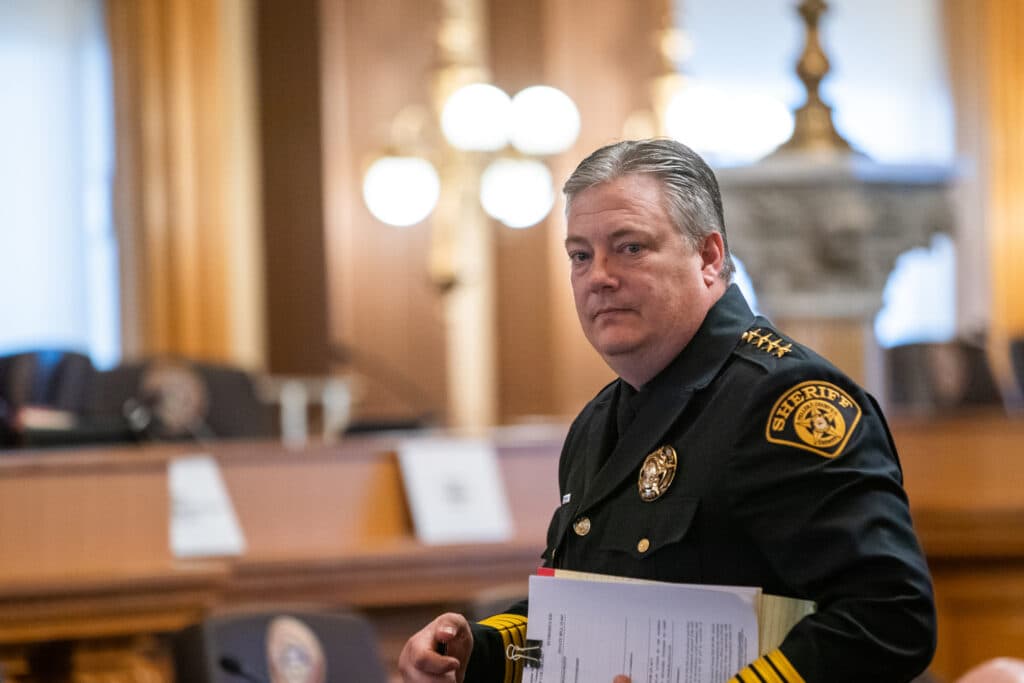
Technically, it is a crime to try and buy a gun when a purchaser is not legally allowed to, but the way prosecutors would view charging on that depends on the reason the purchaser was denied, said the Colorado District Attorney’s Council.
Gun purchasers can appeal a denial. And officials say a large percentage of denials stem from paperwork problems or identity mistakes, state officials say, something that wouldn’t necessarily lead to a criminal charge.
But if the applicant had a disqualifying conviction — like a prior felony, a domestic violence conviction or an outstanding warrant — and is denied because of that, a prosecutor could charge just for the attempt at obtaining a firearm.
Clearly, though, that’s not common.
Roughly 20,000 people a month in Colorado fill out the paperwork to purchase firearms. On average, about 2 percent of those attempted purchases are denied.
When someone wants to purchase a gun in Colorado, they’re required to fill out a 7-page form that asks the purchaser a handful of background check questions, including whether the person has ever been convicted of a felony or a domestic violence case, has ever been judged to be “a mental defective,” has been dishonorably discharged from the armed forces or is living in the country without authorization among other things.
The form is then run by the federal firearms dealer through CBI’s system, which takes anywhere from 10 minutes to two hours. If the person’s background check passes, they have to wait three days before the weapon can be delivered.
That's usually between 250 to 500 applications a month, according to CBI statistics.
In the last year, roughly 5,000 people were denied a gun based on their background checks.
The proposed law that brought Sheriff Mikesell in town to testify against it eventually passed and was signed by the governor. The Colorado Bureau of Investigation received a newfound $1.4 million to look more further into gun purchase background check denials. They were able to hire an additional 11 people.
“We’re admittedly refining and improving our workflow, as we go,” said Rob Low, CBI spokesman. “We try to work collaboratively with our law enforcement partners and are always willing to accept their feedback to make the process better … The gun unit is new.”
In the immediate aftermath of Mohamed Solimon’s alleged anti-Semitic attack on June 1, authorities credited the nation’s Instacheck system for flagging his effort to first buy a gun.
“Colorado’s firearm background check worked as designed when it comes to actions of accused Boulder terrorism suspect Mohamed Soliman,” Low said in June, shortly after Soliman was arrested. “His application was processed, and his attempted purchase was denied. He never appealed his denial.”
But those early self-congratulations ignored the failings that allowed Solimon to remain in the community, even as authorities say he was plotting his attack on supporters of hostages held in Gaza, all in the name of anti-Zionism.

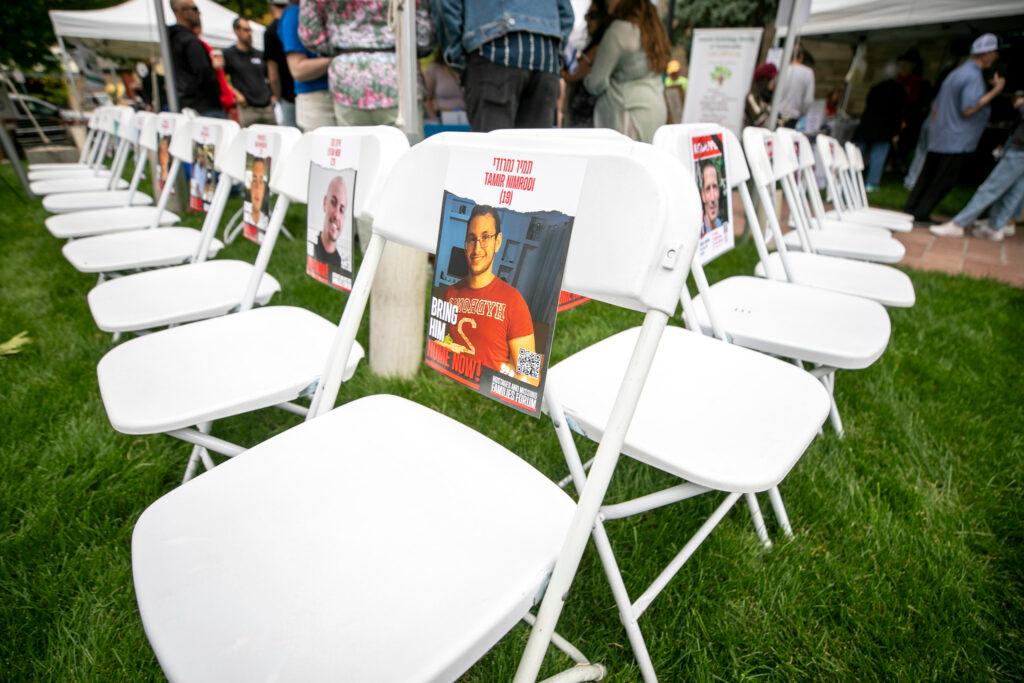
Chairs for each of the Israeli hostages still missing after Hamas' October 2023 attack are set up for the annual Boulder Jewish Festival on Pearl Street Mall. June 8, 2025. 
Pearl Street Mall is filled with people during a March For Their Lives demonstration into the annual Boulder Jewish Festival, one week after an attack on this weekly event. June 8, 2025.
The Department of Homeland Security, currently embarking on a historic effort to increase immigration deportations in Colorado and elsewhere, wouldn’t answer questions for this story about whether they knew Soliman, who was living in Colorado Springs on an expired visa, was trying to purchase firearms as an unauthorized citizen.
The agency also didn’t answer questions about, broadly, whether they even look at the Instacheck data.
Since August 2024, CBI has investigated 92 people who were denied firearm purchases in Colorado.
That’s out of more than 4,200 denials. Of those investigations, CBI officers and other law enforcement agencies made 30 arrests. That’s fewer than one percent of denials leading to criminal cases.
State Sen. Sullivan, who helped shepherd the legislation to get CBI more resources to investigate background checks, said the number is not high enough.
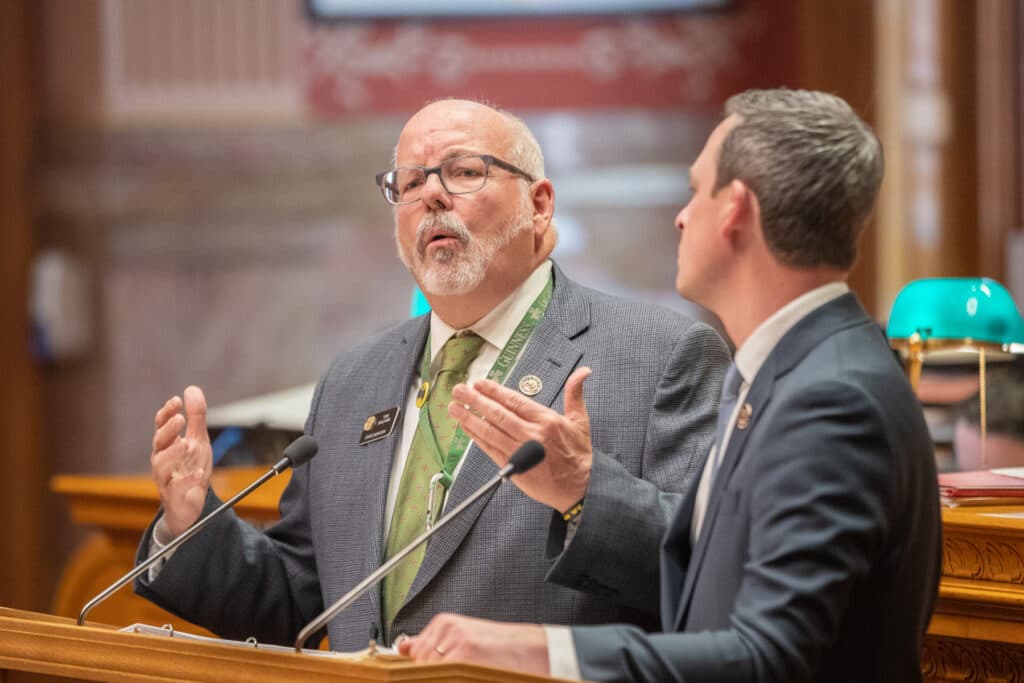
“What can we do to help the number move up?” said Sullivan, who has been an outspoken advocate in the state legislature for strengthening gun laws after his son, Alex, was killed in the Aurora movie theater shooting in 2012. “They have to follow through on it and I’m not sure that they are.”
Boulder District Attorney Michael Dougherty agreed.
“Law enforcement does not always receive clear information as to whether it was a criminal offense or not,” he said. “So these aren't necessarily crimes that are going unaddressed, but there are certainly red flags that we need to have a better system for following up on.”
Dougherty said the information that someone tried to purchase a gun and was denied has been helpful in serious criminal investigations. An officer-involved shooting in Longmont a few years ago started with a man’s failed attempt at trying to purchase a firearm, he said.
“This system needs to be improved and it was my understanding that with CBI’s new unit and the infusion of money to set up that unit would be a positive step in the right direction,” he said. “To my understanding, the numbers don’t reflect that.”
The frustrations prosecutors currently feel about this issue echo almost exactly what Sullivan told lawmakers in 2024 when he said he was trying to solve the problem.
“I did talk to district attorneys, it's like, why aren't you doing anything? Well, they said they weren't getting the cases,” an animated Sullivan told the Senate Judiciary Committee. “And then they would go to law enforcement and there would be the pile of all of the denials, and they don't send that information over because it's not a priority. It's not something that they have the resources for.”
The Colorado Springs Police Department said they receive the Instacheck notifications when a gun purchase is denied, but unless they get more investigative information, they don’t do anything with them.
They confirmed they got a notice on Soliman.
"We receive, we acknowledge and we move on,” said spokesman Ira Cronin. “And focus our resources on our current calls for service and caseload. Unless there is some type of actionable information, there’s nothing for us to do."
Correction (8/5/2025): The first name of Mohamed Soliman was spelled incorrectly in an earlier version of this story.



